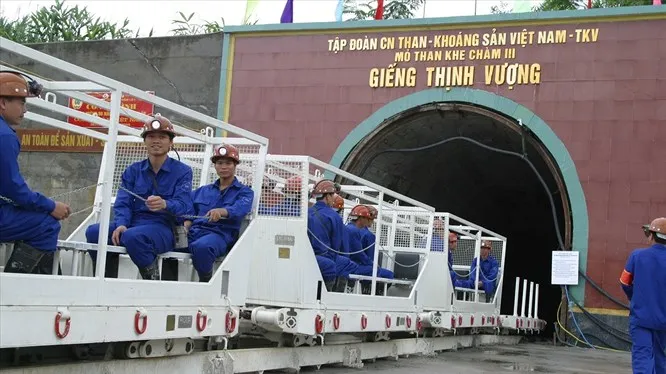
However, the figures are not enough to ensure that the health of TKV is at a safe level.
According to the financial statement, the parent company TKV recorded VND 51,140 billion in net revenue, an increase of 11.5% compared to the same period last year, but after deducting the cost price, gross profit is only VND 4,936 billion, a decrease of 3.4%. TKV also recorded VND 1,033 billion in financial revenue, up 39%, mainly from dividends and shared profits.
By the end of June 30, the total assets of TKV were at VND 84,578 billion, a slight decrease of 1.9% compared to the beginning of the year. Most assets are fixed assets with value of VND 34,492 billion, while long-term financial investments, mainly subsidiaries, were at VND 15,939 billion and short-term receivables were at VND 10,517 billion.
Regarding capital sources, TKV’s own capital was VND 37,237 billion, an increase of 6.4% compared to the beginning of the year. Liabilities were at VND 47,340 billion, down 7.5%, of which total loans were at VND 30,225 billion, down 8.9%.
Thus, it can be seen that before tax, profit of TKV is mainly due to a sharp decrease in interest expenses. In fact, the gross profit of this business is still decreasing sharply. TKV's business has been running badly, and even lost capital during past many years.
According to the conclusion of the Government Inspectorate, Zinc Viet Thai Industrial Joint Venture Company is a typical loss for TKV. This company lost over VND 297 billion, all equity and still owed more than VND 24 billion. Another case was of Thai Nguyen Ferrous Metal Co. Ltd, which handled a debt of USD 13.7 million for Eximbank Thailand. TKV also suffered setbacks from improper investments in the Co Dinh Cromite Joint Stock Company in Thanh Hoa, leading to a huge loss of VND 436.95 billion.
In addition, TKV also faced serious losses from outside industry investments, namely, VND 76.4 billion in the Water Transportation Vinacomin Company which accumulated a loss of VND 140.4 billion, lost shareholders' investment capital and had total liabilities of VND 446.5 billion. Investing VND 52,6 billion in Song Ninh Shipbuilding Joint Stock Company was also an irrecoverable loss, besides also suffering losses of upto VND 47,9 billion from investment in the Joint Stock Investment and Development of Hai Ha Economic Zone.
According to the TKV restructuring plan approved by the Government, by the year 2020, this enterprise must withdraw all state capital from member companies. The Prime Minister included TKV in the list of 93 businesses to be equitized by the end of 2020.
However, looking at the realistic picture of TKV, equitizing of this business will prove arduous. Currently, the biggest difficulty for TKV is capital. After a series of huge losses, reinvestment for TKV requires large amounts of capital.
Only in the coal sector, it is estimated that in the next three years, TKV must exploit an additional 20 million tons of raw coal to meet the domestic demand. To achieve this level of output, TKV must build at least 10 new mines with capacity of 2-2.5 million tons per year, in response to a call for 28 new mines by the Government.
Meanwhile, TKV currently lacks equity capital to match with adequate funds for investment in projects of coal and mineral mining. According to the plan, the demand for investment capital to develop the coal industry by 2030 needs about VND 269,000 billion (an average of VND 17,934 billion/year, of which from now until 2020 an average of VND 19,313 billion/year is the requirement).
According to the Mineral Law, the equity of owners for projects must be at least equal to 30% of the total investment for mining activities and 50% for exploration activities. Therefore, with the need of new investment capital of VND 20,543 billion per year, each year equity must be at least VND 6,000 billion.
Currently, TKV's average before tax profit is only about VND 3,000 billion per year, especially in coal production it is about VND 1,500 billion per year. While pre-tax profit is forecast to remain at current level, it may even decrease due to increasing coal price.
Accordingly, the reciprocal capital from the basic depreciation source and the development investment fund set aside for coal production is only VND 3,000 billion a year, meeting only about 50% of the requirements.
Given the current situation of low productivity and increase in owner equity, mobilizing of commercial loans for development projects for TKV is still very far away.




















